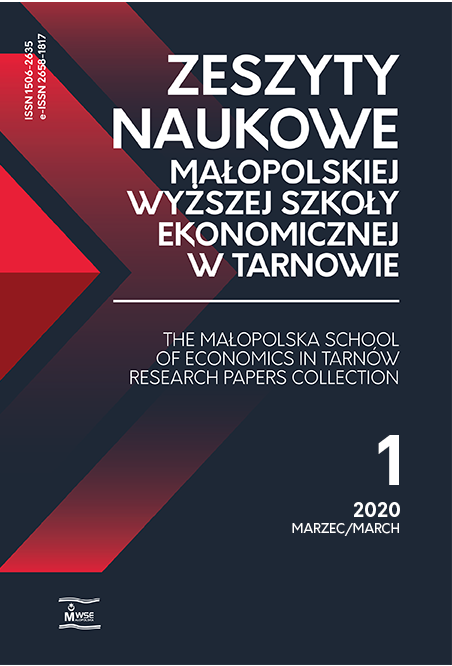Vol. 45 No. 1 (2020)
The intensifying competitive struggle between corporations, but also between economically integrated regions means that knowledge of management and information about competitors, changing economic processes and social phenomena often determine the competitive advantage and even the survival of an organization. In the last decade, the demand for this knowledge has relatively increased, the number of managerial and specialist positions in this field has almost doubled. Their largest increase has occurred in modern, fast-growing industries, for example, such as electronics, the IT sector, automation and telecommunications, banking, insurance and tourism. (...)
While the issues of the articles are varied, they are characterized by similarity of the research approach. The submitted works are dominated by a diagnostic and decision-making approach, limited in scope to selected areas of an enterprise’s or institution’s activity. They contain a description of the benefits of implementing management methods, for example: the use of modern IT tools and technologies in making strategic decisions in the tourism services sector, or identifying a threat to financial investments in Ukraine, the use of an interactive concept of personnel risk assessment in an enterprise, and assessing the effectiveness of corporate governance mechanisms in companies with the participation of the Treasury, as well as the use of multi-criteria assessment of the development of work potential, paying particular attention to ways of shaping the motivational potential of work. Further work presents the development of new manufacturing fields in the financial services sector (FinTech) and in the property insurance sector, e.g. an increase in assignment of reinsurance premiums. (...)
from Foreword
